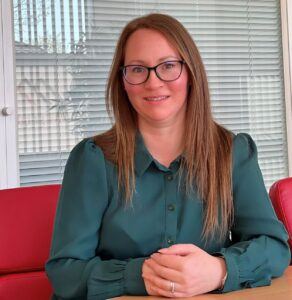Self-Employed Mortgages
Speak to an Expert Advisor
Can I get a mortgage if I’m self-employed?
The short answer is yes, you can get a mortgage if you’re self-employed. In fact, there’s a growing number of self-employed individuals in the UK, and mortgage lenders are recognising this trend. They are increasingly willing to consider self-employed applicants, provided they meet certain criteria.How to get a mortgage as a self-employed
Getting a self-employed mortgage is a process that requires careful planning and consideration. Here are the steps you should follow to increase your chances of approval:- Work with a Mortgage Broker: One of the best ways to navigate the complex world of self-employed mortgages is to enlist the help of a specialist mortgage broker. A broker can assess your unique financial situation and connect you with lenders who are more likely to accept self-employed applicants.
- Assess Your Income: Lenders will assess your income to determine how much you can borrow. Typically, they’ll look at your net profit from your self-employment for sole traders/partnerships. However, some lenders may consider your salary and dividends if you operate through a limited company. Be prepared to provide at least two to three years’ worth of accounts to support your income claims.
- Improve Your Credit Score: A good credit score is essential when applying for any mortgage, and self-employed individuals are no exception. Ensure your credit report is in good shape by paying bills on time and reducing outstanding debts.
- Save for a Deposit: Just like any other mortgage applicant, you’ll need a deposit. While the exact amount varies, having a substantial deposit can improve your chances of securing a mortgage and getting a better deal.
- Prove Affordability: Lenders will assess your affordability, which includes not only your income but also your expenses. Make sure your financial records are in order to demonstrate that you can comfortably afford the mortgage repayments.
How much can you borrow?
The amount you can borrow for a self-employed mortgage depends on several factors, including your income, deposit, and the lender’s criteria. Typically, lenders use a multiple of your annual income to determine the maximum loan amount. As a self-employed borrower, you might be offered between 4 and 4.5 times your annual income. To give you a rough idea, here’s a table with some examples:| Annual Income (Before Tax) | Potential Borrowing Amount |
| £30,000 | £120,000 – £135,000 |
| £50,000 | £200,000 – £225,000 |
| £75,000 | £300,000 – £337,500 |
Is it harder to get a mortgage if you’re self-employed?
While it’s not necessarily harder to get a mortgage when you’re self-employed, the process can be more complex. Lenders often view self-employed individuals as higher-risk borrowers because their income can be less predictable than that of a salaried employee. However, with the right preparation and documentation, you can increase your chances of success.What counts as self-employed?
Self-employment encompasses a wide range of work arrangements. If you fall into any of the following categories, you may be considered self-employed:- Sole Traders: Individuals who run their own businesses and are personally responsible for the company’s debts.
- Limited Company Directors: Owners of limited companies who receive a salary and may also take dividends from company profits.
- Freelancers: Individuals who work on a project-by-project basis for various clients.
- Contractors: Typically, contractors work on a fixed-term contract basis and may operate through their own limited companies.
- Partnerships: Partners in a business venture where profits and losses are shared.
Mortgage Affordability Calculator
Use this calculator to determine how much you could potentially borrow for a mortgage, based on the typical salary multiples used by most UK lenders.
Your Results:
You could borrow up to
Most lenders would consider letting you borrow
This is based on 4.5 times your household income, the standard calculation used by the majority of mortgage providers. To borrow more than this, you will need to use a mortgage broker to access specialist lenders.
Some lenders would consider letting you borrow
This is based on 4.75 times your household income, a salary multiple you might struggle to qualify for without the help of a broker. This income multiple is not widely available to customers who are applying directly with a lender.
A minority of lenders would consider letting you borrow
This is based on 5.5 times your household income, a salary multiple you will struggle to get without a broker. 5.5 times salary mortgages are usually only available under very specific circumstances.
Get Started with an expert broker to find out exactly how much you could borrow.
Get StartedGet expert advice immediately if…
- You need to borrow more than 4.5 times your annual income
- You are only using one income on your application
- You earn income through sources such as Benefits, Commission or Rental income
- You consider yourself to be on ‘low’ income
If one or more of the above apply to you, it’s important to get expert advice before making an application. The right broker can help maximise your chances of approval based on your circumstance.
How much deposit do I need?
The deposit required for a self-employed mortgage is similar to that for other mortgage applicants. A typical deposit is around 5% to 20% of the property’s purchase price. However, offering a larger deposit can be advantageous. Not only does it reduce your loan-to-value (LTV) ratio, but it can also make you more appealing to lenders.
How will I be assessed as a self-employed mortgage applicant?
Mortgage lenders assess self-employed applicants differently from those with traditional employment. Here are the key factors they consider:
- Income: Lenders will analyse your income to determine if it’s stable and sufficient to cover mortgage repayments. They may request tax returns, business accounts, or SA302 forms as evidence.
- Accounts History: Lenders often require two to three years of financial accounts to assess your income stability. If your income has been consistent or growing during this period, it can work in your favor.
- Credit Score: A good credit history is essential for mortgage approval. Lenders will check your credit report to assess your financial responsibility.
- Deposit: The size of your deposit can affect the interest rates and deals available to you. A larger deposit can improve your borrowing options.
- Affordability: Lenders will evaluate your monthly expenses to ensure you can comfortably afford the mortgage payments.
Today’s best buy mortgages
Latest mortgage best buys
Based on a mortgage of £300,000 at 75% LTV and 25 years
| Speak with Us | Interest Rate | Mortgage Type | Monthly Repayment Amount | Total Fees | Max LTV |
|---|---|---|---|---|---|
 | 4.14% | Fixed | £1,219 | £30 | 75% |
 | 4.18% | Fixed | £1,216 | £1,025 | 75% |
 | 4.18% | Fixed | £1,215 | £999 | 75% |
 | 4.20% | Fixed | £1,220 | £1,403 | 75% |
What will I need to apply for a mortgage if I’m self-employed?
When applying for a self-employed mortgage, you’ll need to provide the following documentation:
- Proof of Income: This includes your tax returns, business accounts, SA302 forms, and bank statements.
- ID and Address Verification: Lenders will require proof of your identity and address, such as a passport and utility bills.
- Credit Report: Ensure your credit report is in good shape and provide it to the lender for assessment.
- Business Accounts: If you operate through a limited company, you’ll need to provide your company accounts and potential details of any other directors.
- Personal Tax Returns: Self-assessment tax returns are a common requirement for self-employed mortgage applicants.
- Proof of Deposit: You’ll need to demonstrate the source of your deposit funds, which should be consistent with your financial records.
- Additional Documentation: Depending on your circumstances, lenders may request additional documentation to assess your financial stability.
Securing a self-employed mortgage is possible, but it requires careful planning, documentation, and often the assistance of a specialist mortgage broker. Understanding the criteria, preparing your financial records, and improving your credit score can all increase your chances of success. If you’re self-employed and dreaming of homeownership, don’t let the process overwhelm you. With the right approach and professional guidance, you can achieve your goal of owning your own home.
If you have any questions or need assistance with your self-employed mortgage application, feel free to reach out to Ascot Mortgages at 01925 711558 or [email protected]. Our team of experts is here to help you every step of the way.
Alison Gibson is a seasoned mortgage expert at Ascot Mortgages, specialising in providing bespoke mortgage advice to professionals across the UK. To find your match and start your journey towards your ideal mortgage, you can reach out to us directly at 01925 711558 or send an enquiry through our website.
Apply for a Mortgage
Get things moving, apply for a mortgage.
Call Now - 01925 711 558
Free unbiased mortgage advice is just a phone call away.
Meet Our Team












A simples guide to mortgages
Contact Us
Legal
Ascot Mortgages authorised and regulated by the Financial Conduct Authority and can be found on the FCA register (www.fca.org.uk) under reference 776062. The FCA do not regulate some forms of mortgages. The guidance and advice contained in this website is subject to UK regulatory regime and is therefore restricted to consumers based in the UK. There may be a fee for mortgage advice. The precise amount will depend upon your circumstances but we estimate it will be £599 per mortgage account. Ascot Mortgages Ltd give you the option to pay a non-refundable fee of £1299 payable with the application. If this option is taken, Ascot Mortgages Ltd will refund any procuration fee received by the lender.
Ascot Mortgages Limited is registered in England and Wales and have their registered office at 8 Webster Court, Westbrook, Warrington, WA5 8WD. The company’s registration number is 06764971.
We are a credit broker, not a lender. We work with the whole of the lending market. We may receive commissions that will vary depending on the lender, product, or other permissible factors. The nature any commissions model will be confirmed to you before you proceed.
YOUR PROPERTY MAY BE REPOSSESSED IF YOU DO NOT KEEP UP REPAYMENTS ON A MORTGAGE OR ANY DEBT SECURED ON IT
©2025 AscotMortgages.co.uk – All Rights Reserved








